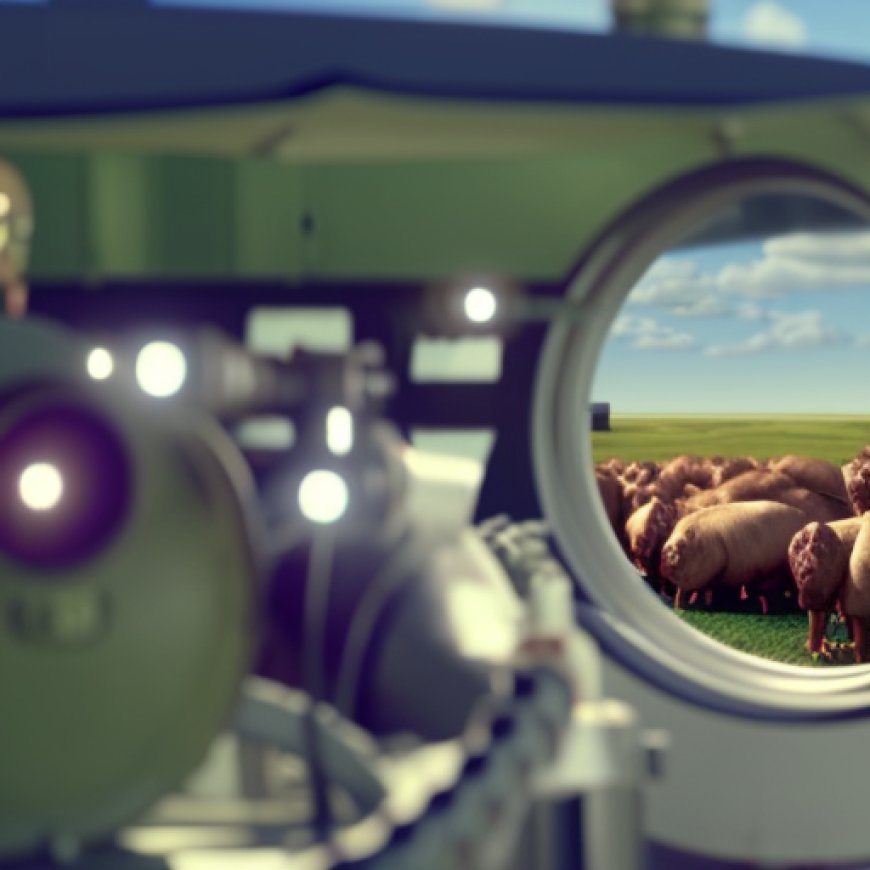Court upholds North Carolina hog farms’ anaerobic digester permits
Court upholds North Carolina hog farms' anaerobic digester permits - Court upholds North Carolina hog farms ... National Hog Farmer


Sustainable Development Goals (SDGs) in Action: Court Rules in Favor of Anaerobic Digesters Installation on Hog Farms

Introduction
Four Murphy-Brown hog farms in North Carolina have received proper permits to install anaerobic digesters as part of a modification to their existing animal waste management systems. This week, a state appeals court ruled that the permit applications were reviewed appropriately by the Department of Environmental Quality (DEQ) before being issued.
Challenges and Petitions
The Environmental Justice Community Action Network and Cape Fear River Watch submitted four petitions challenging DEQ’s approval. The petitions were later consolidated for review by the Office of Administrative Hearings. The two non-profit organizations argued that the permits would lead to increased pollution levels and adversely impact the water bodies relied upon by community members.
Request for Reversal
The petitioners requested that the court reverse the lower court’s order, claiming that DEQ failed to consider whether Murphy-Brown’s proposed systems were the least adverse available and if the cumulative effects of the systems were reasonable under Article 21, Part 1 of Chapter 143 of the North Carolina Rules of Civil Procedure.
Permit Applications and Authorization
In December 2019, Murphy-Brown submitted permit applications to DEQ for the installation of new anaerobic digester systems on four farms located in Duplin and Sampson counties: the Benson Farm, the Goodson Farm, the Waters Farm, and the Kilpatrick Farm. DEQ authorized Murphy-Brown to install the new waste management systems at each of the farms in March 2021.
Transition to Anaerobic Digestion Systems
Prior to obtaining the permits, the farms had been using open-air lagoons as a waste management system, utilizing wastewater as fertilizer for nearly 20 years. The addition of anaerobic digestion systems would allow the farms to capture methane and other biogases produced during the waste disposal process for further use as an energy source. The remaining liquid waste would be stored in open-air lagoons and sprayed onto fields as fertilizer.
Restrictions and Performance Standards
The permits included restrictions that prohibited the farms from increasing the quantity of stocked animals or volume of waste flow without prior approval. The court cited a state law that emphasizes the required performance standards, including animal waste discharge, atmospheric emissions, and contamination to soil and groundwater, when issuing permits for animal waste management systems that use anaerobic digester systems.
Supporting Sustainable Development Goals
The court’s ruling aligns with several Sustainable Development Goals (SDGs), including:
- SDG 6: Clean Water and Sanitation – By considering the potential impact on water bodies, the court’s decision aims to protect water resources and ensure clean water for communities.
- SDG 7: Affordable and Clean Energy – The installation of anaerobic digesters allows for the capture and utilization of methane and other biogases as an energy source, contributing to the goal of affordable and clean energy.
- SDG 12: Responsible Consumption and Production – The transition to anaerobic digestion systems promotes responsible waste management and sustainable agricultural practices.
- SDG 13: Climate Action – By capturing methane and reducing greenhouse gas emissions, the anaerobic digesters help mitigate climate change and support climate action efforts.
“DEQ did not err in declining to consider the requirements asserted by Petitioners because the permits requested in this case fell within the alternate permitting process described in Part 1A of Article 21, not Part 1. We hold petitioners’ appeal is appropriately before this Court and affirm the Superior Court’s order,” stated Judge Jefferson Griffin in the court’s unpublished opinion.

Join us, as fellow seekers of change, on a transformative journey at https://sdgtalks.ai/welcome, where you can become a member and actively contribute to shaping a brighter future.







